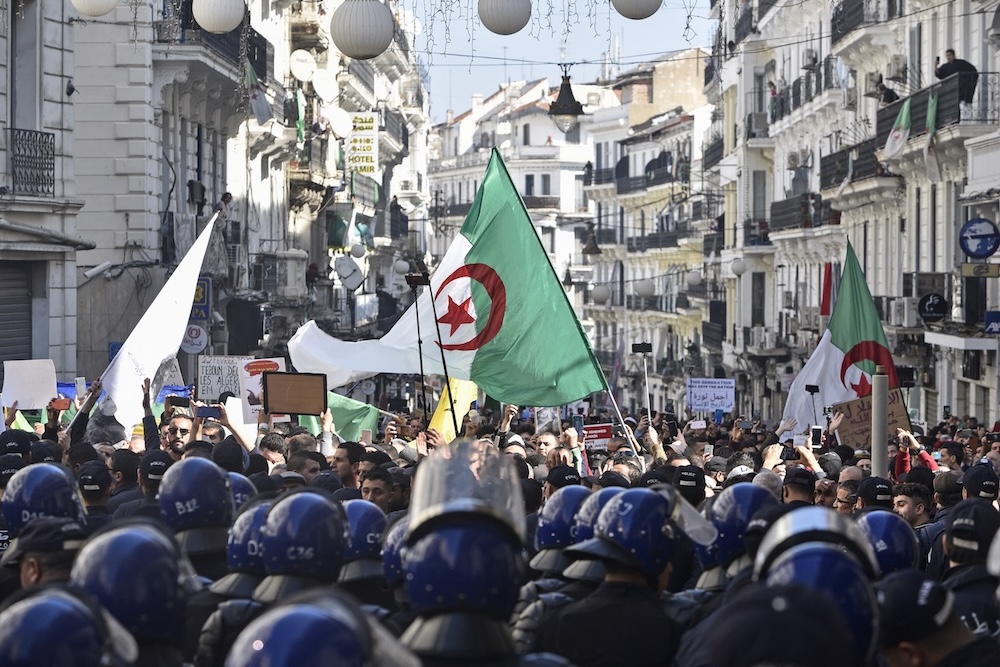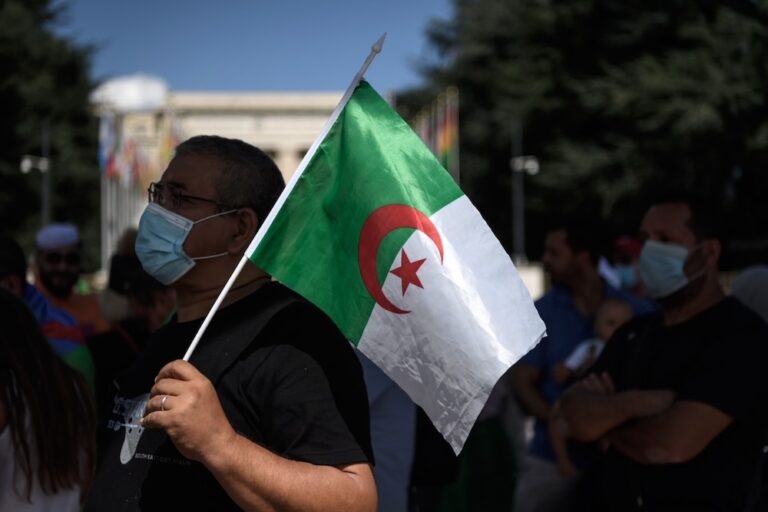A new report exposes alarming tactics employed by the Algerian government to silence activists and stifle dissent beyond its borders.
This statement was originally published on cihrs.org on 26 November 2024.
The Cairo Institute for Human Rights Studies (CIHRS) published a report today that reveals the Algerian government’s expanding strategy of transnational repression, systematically targeting activists, journalists, and human rights defenders (HRDs) living abroad. The report, titled “The Noose is Tightening Around Us: Algeria’s Use of Transnational Repression to Crackdown on Dissent,” details the array of tactics employed by the Algerian government to silence dissent beyond its borders, drawing troubling parallels to authoritarian practices of countries like China and Egypt.
CIHRS’ investigation into Algeria’s transnational repression from 2020 to 2024 is based on 19 in-depth interviews with 21 exiled activists, as well as insights from their legal representatives and family members. It also includes a comprehensive analysis of primary sources, such as court documents, extradition requests, and reports from leading human rights organizations.
The Algerian government is increasingly pursuing activists abroad, targeting individuals who advocate for democracy and human rights. This isn’t just an isolated strategy; it’s part of a comprehensive campaign to suppress calls for change and impose strict control over narratives about dissent in the country.
AMNA GUELLALI, RESEARCH DIRECTOR AT CIHRS
The report warns that Algeria’s transnational activities aim to undermine activists’ voices where they may otherwise enjoy freedom of speech and safety from repression. Many of these activists reside in democratic countries, where they have access to platforms for open dialogue, challenging state narratives, and shedding light on governance issues. Yet Algeria’s reach extends to their lives abroad, ensuring that their dissent is met with intimidation, even in spaces typically safe from authoritarian control.
CIHRS documented several methods of transnational repression, including diplomatic pressure on foreign governments to detain or extradite activists, travel bans to restrict their movements, and targeted harassment of activists’ families and support networks within Algeria. These tactics form a web of intimidation designed to limit the voices of Algerian activists regardless of where they live.
Central to Algeria’s repressive strategy is its use of a conspiracy narrative that frames opposition as part of a foreign-backed plot to destabilize the nation. By labeling HRDs and activists as “agents” of hostile states, Algeria cultivates a climate of fear and suspicion to justify repressive measures. President Abdelmadjid Tebboune has repeatedly underscored this rhetoric, claiming foreign interference in protests and dissent. Following the fires in the Kabylie region in 2021, for example, he blamed Morocco and Israel for inciting unrest. State-controlled media echo these accusations, reinforcing the idea that activists, whether at home or abroad, are pawns of foreign powers – a false narrative that then permeates judicial actions against them.
CIHRS urges the international community to recognize Algeria’s actions as a growing threat to human rights and to implement immediate protections for exiled dissidents. Failure to address Algeria’s tactics would embolden similar authoritarian regimes, allowing them to extend repression globally and weaken democratic freedoms everywhere.
This report underscores the urgent need for coordinated international safeguards against transnational repression. As authoritarian states intensify their efforts to quash dissent beyond borders, the world must respond with concrete protections to uphold freedom of expression and safeguard human rights defenders wherever they may reside.



